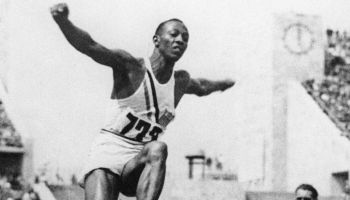ORCHARD PARK, N.Y. — It has been nearly two years since Muzzammil Hassan directed police officers in this serene Buffalo suburb to the decapitated remains of his estranged wife inside the Muslim-oriented television station the couple ran.
With his second-degree murder trial set to start, the question for jurors may be less about whether Hassan killed Aasiya Zubair Hassan, 37, after she filed for divorce than about why.
While behind bars, Hassan, 45, has been laying the groundwork for a battered-spouse defense, reaching out to reporters and others to say he acted in self-defense after suffering years of physical and emotional trauma.
The claims would be part of the defense case, Hassan’s attorney, Jeremy Schwartz, said Friday. Jury selection is scheduled to begin Monday.
Experts predicted the strategy would be a tough sell. Hassan’s wife was smaller than him and had alleged years of abuse by her husband in a divorce affidavit signed six days before she died.
“The nature of the homicide demonstrates such rage and anger toward his wife that it will be difficult to make him out to be a victim of domination and abuse,” said Casey Gwinn, president of the San Diego-based National Family Justice Center Alliance.
In a jailhouse interview with WGRZ-TV last fall, Hassan described “this huge feeling of relief” after his wife’s death in February 2009.
“When everything was over, I felt I had escaped from a terrorist camp,” he said.
Those who knew Aasiya Hassan have described her as a gentle and sweet woman who was working toward an MBA while serving as general manager of their station, Bridges TV. She also cared for the couple’s young son and daughter and Hassan’s two older children from one of two previous marriages.
Researchers say about 10 to 15 percent of domestic abuse cases involve male victims. But rarely is anyone as insistent about being a victim as Hassan is, experts say.
“Typically, when someone is a victim of domestic violence, they don’t recognize themselves as such. That’s what makes these cases so very difficult to prosecute,” said Suzanne Tomkins, a clinical law professor at the University at Buffalo.
“They’ve been told countless times that they’re deserving (of abuse), they’ve created this, and they don’t see themselves as a victim,” she said. “So, oftentimes, victims are very reluctant to assist in the prosecution of a case.”
Hassan, on the other hand, has written to The Associated Press and other news outlets and agencies, supplying them with research showing women can be abusers and including claims that his wife abused him.
“Domestic violence is not about gender, it’s about control,” Hassan wrote in one of three letters to the AP. “Who is the master, who is the slave? Who (is) the terrorist, who is the hostage? Who is the dictator, who is the prisoner? Who is the captor, who is the POW?”
Two of the letters, postmarked in Buffalo, were signed with his mother’s name. Hassan’s mother, who lives in Dallas, denied writing them. The neat and distinctive handwriting matches a later letter signed by Hassan at the Erie County Holding Center in Buffalo.
Aasiya Hassan was frequently abused shortly after marrying Hassan in October 2000 in Pakistan, she said in her divorce affidavit, which was obtained by The Buffalo News and posted on its website.
In the 21-page affidavit, she tells of black eyes, bloodied noses and swollen lips and instances of her husband ransacking their house. She wrote he would use his 6-foot-plus size to his advantage, sometimes sitting on her, even while she was pregnant. She said she suffered a miscarriage after one such incident in 2006.
She described being kept up all night as Hassan poured water on her, shook her and removed pillows from their bed to prevent her from sleeping while he lectured her about her “character flaws.” He called her a bad mother and a bad Muslim, she said.
“The defendant’s desire to help me fix my ‘personality flaws’ has been a recurring theme throughout our marriage,” she wrote. “On many occasions, the defendant and I have spent hours and even full days in our bedroom while he lectures me about my character flaws and attempts to revamp my personality.”
Orchard Park police were called to the house on several occasions, Chief Andrew Benz said.
The Hassans founded Bridges TV, an American Muslim network, in 2004 with the goal of building cultural understanding and countering negative images of Muslims after Sept. 11. Muzzammil Hassan, who’d previously worked for Kodak and M&T Bank, was president and chief executive of the station.
Erie County District Attorney Frank Sedita and prosecutor Colleen Curtin Gable declined to discuss the trial but have said the case would be built in part on Hassan’s alleged admissions and strong motive evidence.
Hassan’s latest letter from jail, sent to the AP in November, was written in poem form, with 16 three-line verses railing against a Buffalo News reporter who has covered the case and a family violence expert for “always blaming the man as the abuser.”
“In the religion of patriarchy, all abusers are monster men, all victims are pure and innocent sweet little women,” he wrote.
















